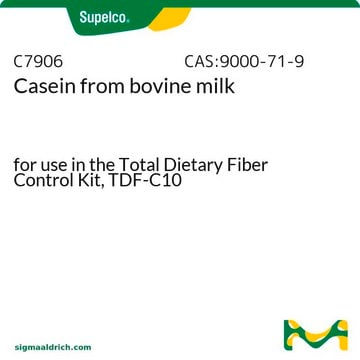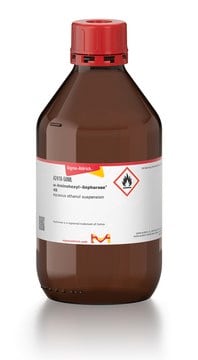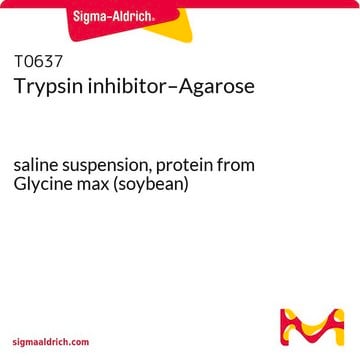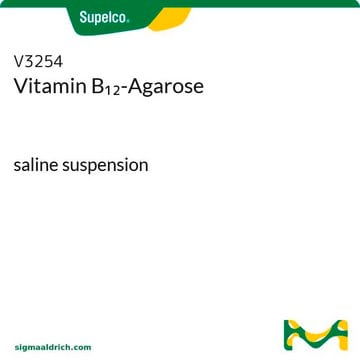C9210
Cyanogen bromide-activated Agarose
lyophilized powder
Synonym(s):
Agarose, cyclic carbonimidate, CNBr-Activated Agarose
About This Item
Recommended Products
form
lyophilized powder
technique(s)
affinity chromatography: suitable
matrix
cross-linked 4% beaded agarose
matrix active group
cyanate or related structures
matrix spacer
1 atom (when ligands are coupled via isourea derivative or related linkage)
swelling
1 g swells to 2.5-4.5 mL
capacity
≥10 mg/mL binding capacity (BSA)(via amino groups)
suitability
suitable for chromatography
storage temp.
−20°C
Looking for similar products? Visit Product Comparison Guide
Application
Physical form
Storage Class Code
11 - Combustible Solids
WGK
WGK 3
Flash Point(F)
Not applicable
Flash Point(C)
Not applicable
Personal Protective Equipment
Certificates of Analysis (COA)
Search for Certificates of Analysis (COA) by entering the products Lot/Batch Number. Lot and Batch Numbers can be found on a product’s label following the words ‘Lot’ or ‘Batch’.
Already Own This Product?
Find documentation for the products that you have recently purchased in the Document Library.
Customers Also Viewed
Our team of scientists has experience in all areas of research including Life Science, Material Science, Chemical Synthesis, Chromatography, Analytical and many others.
Contact Technical Service












